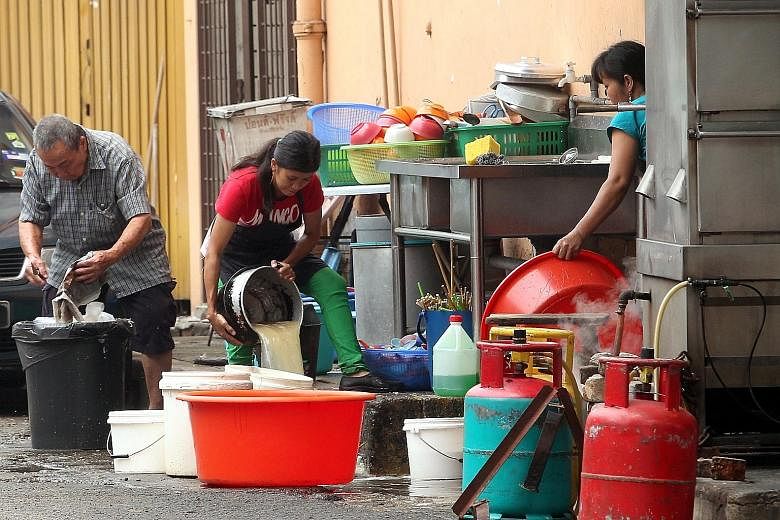KUALA LUMPUR • The health authorities will carry out checks on illegal foreign workers working as food handlers in Kuala Lumpur in their efforts to stop a typhoid fever outbreak in Malaysia's capital city.
Deputy Health Minister Hilmi Yahya said: "The problem may lie with illegal workers who are not medically screened, and they may be carriers of the disease."
Hundreds of thousands of undocumented foreign migrants often work as cheap labour in Malaysia, including as helpers and cooks in restaurants in Kuala Lumpur.
While foreign workers in Malaysia must undergo compulsory medical screening before they can be employed, illegal workers evade the compulsory anti-typhoid injections.
"We are still investigating to determine the source and carriers of the disease," Datuk Seri Hilmi said on Tuesday, adding that a mix of locals and foreigners had contracted the disease, which is more common in rural areas.
There have been 32 typhoid fever cases reported in Kuala Lumpur since August.
Typhoid fever is caused by the bacteria salmonella typhi and is spread by consuming food or water contaminated with excreta from an infected person. The symptoms include abdominal pain, fever, headache and fatigue.
Kuala Lumpur City Hall has been giving local and foreign food handlers typhoid injections to stop the spread of the disease, said health and environment department director Hayati Abdullah.
City Hall has also set up counters for workers to get typhoid injections in selected areas.
"In places where there are more than 40 workers who need the shots, we will send a team to handle it. These include places like hotels and areas with clusters of restaurants and stalls," Dr Hayati said.
"We will continue with the immunisation exercise in addition to our usual operations at food outlets in the city," she said.
Selangor's health executive councillor Daroyah Alwi stressed the importance of a simple practice for people involved in food preparation - washing of hands with liquid soap after using the washroom to guard against water borne diseases such as typhoid. "It is the most effective and inexpensive method to prevent diseases," Dr Daroyah said.
Health Minister S. Subramaniam said the typhoid outbreak in Kuala Lumpur is not a cause for alarm as the 32 individuals have been treatment. "The disease is treatable. We have enough vaccine and the situation is under control," he was quoted as saying by the New Straits Times newspaper.
THE STAR/ASIA NEWS NETWORK

